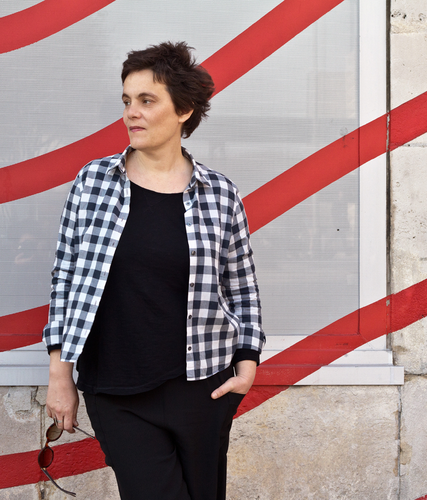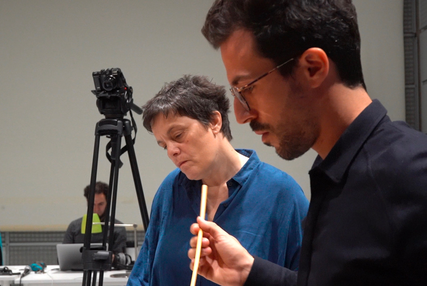EROR (The Pianist)
EROR - les enjeux artistiques
Au cours la crise financière qui frappe de plein fouet la Grèce, un tag apparaît sur les murs d’Athènes, fleurissant à l’envi, dans toutes les dimensions, du plus petit (20 cm) dans un coin de rue, au gigantesque, occupant 30 mètres de large sur la façade d’un grand immeuble, visible à des centaines de mètres à la ronde. C’est cette interjection lancinante dont Georgia Spiropoulos se saisit pour cette nouvelle œuvre, qui embrasse avec l’expérience athénienne d’autres traumatismes urbains, tels les attentats parisiens du Bataclan. Elle y entrevoit l’occasion de questionner l’instabilité de la cité, que ce soit une instabilité systémique, une instabilité civilisationnelle, une instabilité financière ou une instabilité géographie – le tout, naturellement, exprimé par le biais de l’instabilité du matériau musical et visuel, sans parler de l’instabilité numérique qu’apporte l’introduction de l’aléatoire et de l’erreur algorithmique grâce (ou à cause) de l’informatique musicale.
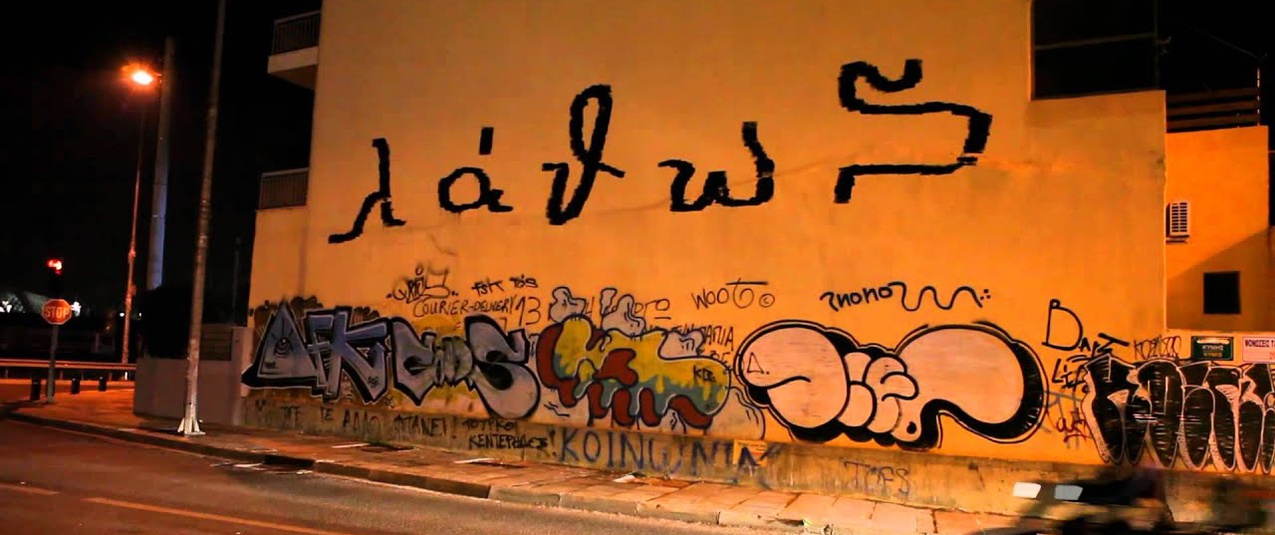
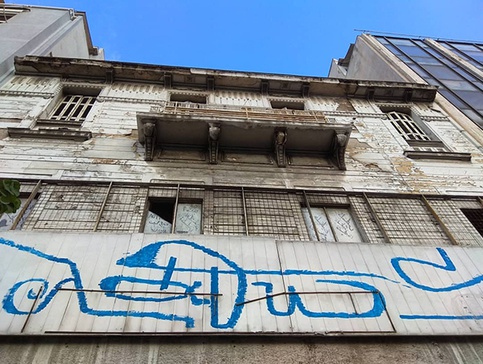
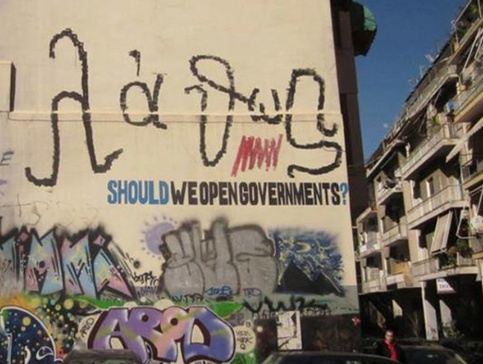
Dans Athènes, le tag Eror, λάθως en grec
Fantasmagorie pour pianiste déguisé, électronique live et théâtre d’ombres murales, EROR décline ainsi la géographie sonore erronée d’une ville dont les rues vides ne sont animées que par quelques silhouettes fantomatiques se mouvant et se déplaçant imperceptiblement, un pianiste-survivant « déguisé » répétant obstinément le mot « erreur », et un piano-cerveau se rappelant toutes les musiques – pour les oublier aussitôt.
Pianiste masqué et paysages vocaux - les enjeux technologiques
Poursuivant, en un certain sens, son travail sur le masque – qu’elle a largement exploré dans Les Bacchantes, par exemple, en faisant le lien entre théâtre antique, rite et informatique musicale –, Georgia Spiropoulos s’intéresse ici au piano et à son identité sonore : « Tour à tour instrument à cordes, instrument à percussion, instrument à résonateur, jouet d’enfant, haut-parleur, instrument parlant, le piano est ici un instrument multiforme, hybride, dit la compositrice. D’un bout à l’autre de l’œuvre, d’action sonore en action sonore, de gestes pianistiques en tombeaux-hommages, le piano se métamorphose inlassablement. »
.
vidéo 1 : Les Bacchantes, épisode 1 : The King (Pentheus) avec Médéric Collignon / vidéo 2 : Geografia Sonora au ZKM, 2015
Elle poursuit dans le même temps son exploration d’une autre de ses préoccupations compositionnelles récentes : les « vocalscapes », paysages ou environnements vocaux. Dans l’installation multimédia Geografia sonora (2012) ou dans l’œuvre électroacoustique Vocalscapes on Walt Whitman (2014), Georgia Spiropoulos mixait des enregistrements vocaux (d’extraits poétiques) par différents locuteurs (dans sept langues différentes) sur un fond sonore qui servait de décor au discours, comme pour le « mettre en scène » (un pont viennois, un paysage neigeux peuplé de chants d’oiseaux, un studio d’enregistrement, un couloir d’une grande école plongé dans l’obscurité nocturne…). Ici, toutefois, ces paysages ou environnement vocaux sont réalisés uniquement avec des voix de synthèse, par l’ordinateur.
« Un large travail est enfin consacré à la spatialisation, conclut-elle, grâce à laquelle je veux créer plusieurs espaces/foyers sonores : dans la salle ou plusieurs foyers sur la scène par exemple. Mais je veux aussi ménager un espace sonore à l’intérieur du piano, à l’aide de transducteurs, par exemple. »
Précédents projets à l'Ircam
Roll… n’Roll… n’Roll (2015) pour harpe et électronique
Les Bacchantes (2010), hommage à Xenakis, opéra brut pour un interprète, électronique et lumières
Klama (2005-2006) pour chœur mixte à 8 voix, électronique temps réel et sons préenregistrés
Oria (2002-2003) pour ensemble
Saksti (2001) pour saxophone et électronique
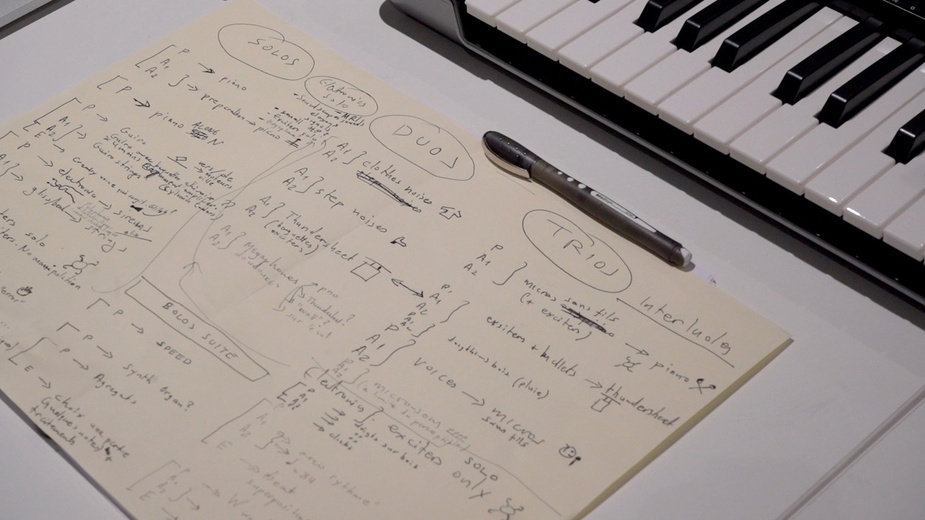 Esquisse de Georgia Spiropoulos © Ircam, Murielle Ducas
Esquisse de Georgia Spiropoulos © Ircam, Murielle Ducas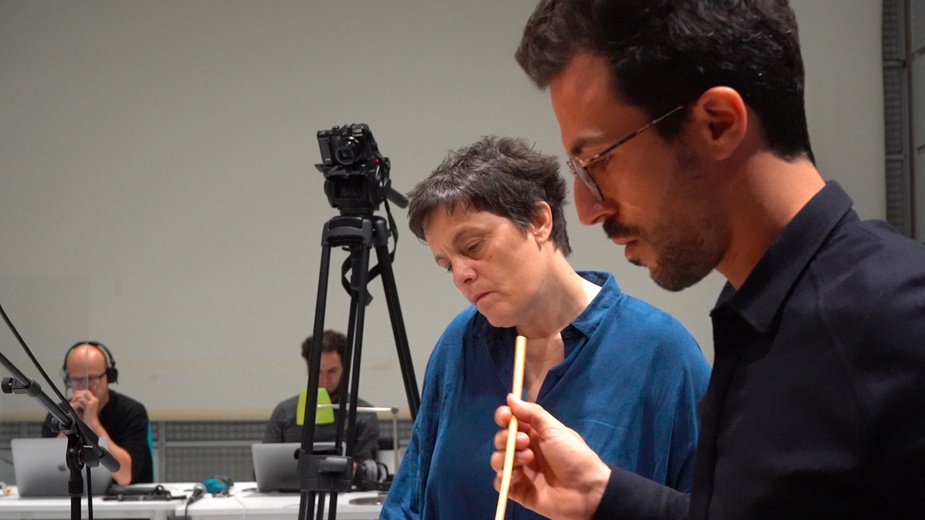 Georgia Spiropoulos avec Alvise Sinivia, pianiste, en studio à l'Ircam © Ircam, Murielle Ducas
Georgia Spiropoulos avec Alvise Sinivia, pianiste, en studio à l'Ircam © Ircam, Murielle Ducas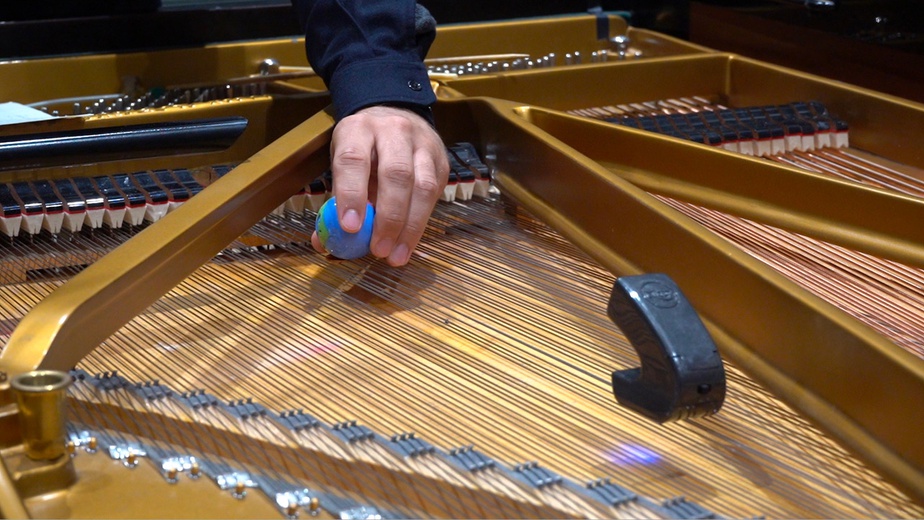 Alvise Sinivia, pianiste, en studio à l'Ircam © Ircam, Murielle Ducas
Alvise Sinivia, pianiste, en studio à l'Ircam © Ircam, Murielle Ducas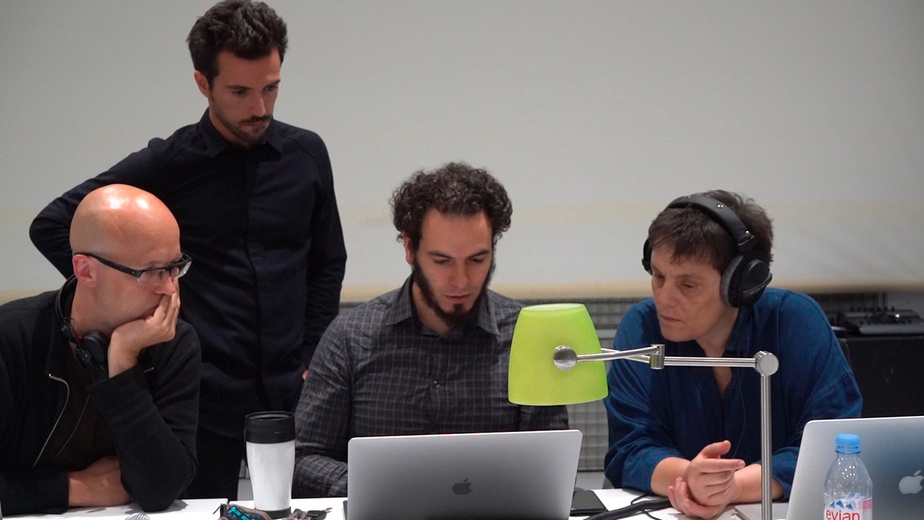 De gauche à droite, Sylvain Cadars, ingénieur du son, Alvise Sinivia, pianiste, Benjamin Lévy, réalisateur en informatique musicale, et Georgia Spiropoulos, compositrice © Ircam, Murielle Ducas
De gauche à droite, Sylvain Cadars, ingénieur du son, Alvise Sinivia, pianiste, Benjamin Lévy, réalisateur en informatique musicale, et Georgia Spiropoulos, compositrice © Ircam, Murielle Ducas Alvise Sinivia, pianiste, en studio à l'Ircam © Ircam, Murielle Ducas
Alvise Sinivia, pianiste, en studio à l'Ircam © Ircam, Murielle Ducas
Biographie
Georgia Spiropoulos
Compositrice (née en 1965)
Formée à Athènes au piano et à toutes les disciplines entourant la composition, Georgia Spiropoulos pratique aussi le jazz et se passionne pour la musique grecque traditionnelle. Elle suit les …




